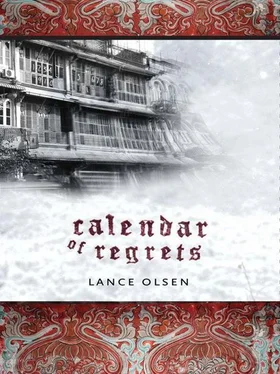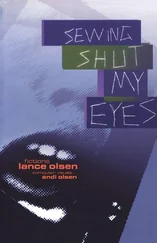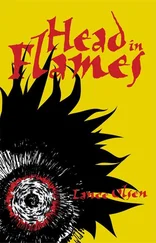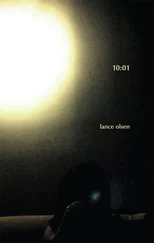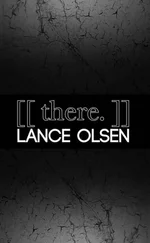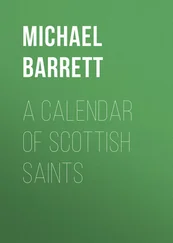PD. What does it make you think about?
WT. 168 people dead. 800 wounded. What could possibly come next?
PD. We're not really here today to, uh, to talk about the Oklahoma bombing, Bill.
WT. I'm just saying. It's something to consider.
PD. Well, let's go ahead and save that for another day, all right? This morning I'd like to continue learning about your trip to our planet.
WT. Fine.
PD. So you arrived in Manhattan on…
WT. I arrived in your Manhattan on September 1, 1986.
PD. And how long were you supposed to stay?
WT. Two weeks.
PD. How were you supposed to get by, Bill — eat, sleep, that sort of thing?
WT. Rob people. Don't hurt them or anything. Don't draw any more attention to yourself than necessary. Get their cash. It was pretty easy. I walked up to people on side streets and pretended I had a gun in my pocket.
PD. What happened?
WT. They gave me what I needed. People are nice that way.
PD. Tell me about your mission. What were you supposed to do during your time in our brane?
WT. Record.
PD. What did they want you to do that for?
WT. Test pilots don't ask why the jets they fly are built.
PD. Would you maybe speculate for me a little?
WT. Why do you go to the moon?
PD. But it sounds like you're suggesting maybe it was something else as well.
WT. I'm suggesting why have a rebirth of a religion when you can assure that the religion never dies in the first place?
PD. You're suggesting maybe your trip was part of a plan to spread your religion?
WT. I'm not suggesting anything.
PD. You said you record, Bill. How, uh, how do you go about doing that?
WT. I just open my eyes and it starts.
PD. And everything went well at first.
WT. I was down in the Village. Near Washington Square. It was a little past midnight. I remember it was warm. I was recording nightlife at the cafés and bars along Sullivan. Then these two police on bikes were yelling at me.
PD. Why do you suppose they were they doing that, Bill?
WT. I was just standing there. Then they were yelling at me. I ran.
PD. But why, Bill, if you didn't know, uh, if you didn't believe you'd done anything wrong?
WT. Their voices scared me. I ducked left on Third, into this restaurant. It was vegetarian. They followed. One tackled me. The other handcuffed me. My wrists didn't feel good. Their mouths were doing things. It was all mixed up.
PD. What were their mouths doing?
WT. They were telling me I had the right to remain silent. They were telling me anything I said could be used against me in a court of law. I had the right to consult with an attorney and to have that attorney present during questioning. Their mouths were telling me if I couldn't afford one, an attorney would be provided at no cost.
PD. Did you tell them you hadn't done anything?
WT. I explained how they needed to let me up.
PD. But they didn't let you up. Is that right? They arrested you instead.
WT. They said I had been putting coins into expired parking meters.
PD. But you don't remember doing that.
WT. I didn't do that.
PD. But they arrested you and put you in jail anyway.
WT. For thirty days.
PD. And so you were forced to remain in this dimension longer than you were supposed to.
WT. That is correct.
PD. And that's when the messages started arriving.
WT. That is correct.
PD. But you couldn't do what they said, could you?
WT. It was going to be another week before I could try a return.
PD. Why is that, Bill?
WT. The ergs. They needed to regenerate. Only there was no way to let the Vice President know. It was a one-way transmission system.
PD. Don't you think it's a little odd, Bill, that the Vice President didn't provide you with a way to contact him?
WT. Membranes are membranes. Worlds are whirls.
PD. And the messages arrived night and day. It must have been very difficult for you.
WT. I couldn't rest or sleep. My head felt like the angel was screeching inside.
PD. What angel is that, Bill?
WT. The fallen one.
PD. The fallen angel? From The Qur'an ?
WT. From the bedtime story.
PD. I don't believe I'm familiar with that one.
WT. My mother used to read it to me. It was my favorite. That's what it teaches.
PD. What does it teach?
WT. That worlds are whirls.
PD. Whirls? Worlds are whirls, not worlds?
WT. That is correct.
PD. Would you do me a favor, Bill?
WT. What?
PD. Would you tell it to me? I'd like to hear it.
WT. You would?
PD. Very much so. Yes.
WT. Uh, sure. Sure. It starts… how does it start? Let's see. Oh, yeah. It starts with this lake. It starts with this lake somewhere in Finland, and two children on their way home from church.
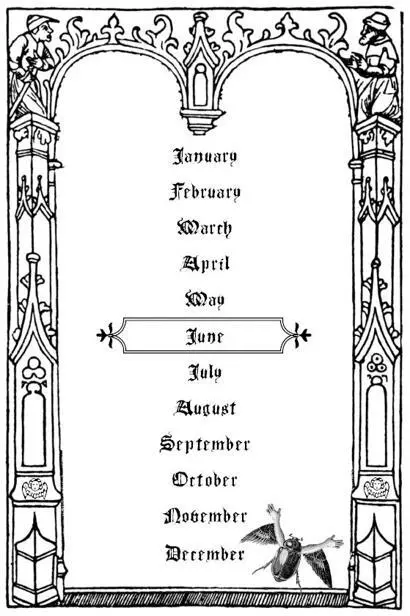
A lake somewhere in Finland inventing a slightly out-of-focus afternoon above itself. Two children on their way home after church. Wordless, hands in pockets, they are following a deserted road. Low grayblue hills lope along the far shore. Clusters of white flecks against dark wet earth. Sami, the hatted one, thinks about the chuffing sound his feet make. Jarmo, his older brother, the one in the too-small brown jacket, thinks about the fish soup his mother is preparing this very moment back at the farm as she does every Sunday afternoon.
Both boys approach the edge of not thinking, though Sami is infinitesimally closer to that edge than Jarmo. They have walked this stretch of road too many times to notice it. To them, it simply represents an instrument of agency. They are, that is, imagining the end rather than the means of their journey. They thus fail to hear the scattered birdsong, the wind exhaling continuously across the lake, the suck and gurgle of the soggy ground around them.
The air busy with a frisky chill and the damp loamy greenness of early spring.
They fail to notice these things, too.
Fish soup or ham, Jarmo thinks. How, when you reach deep into the barrel of salted meat at the end of the season, right down to the grainy bottom of it through the crystals like warm ice, you extract leather slabs alive with maggots. As if someone had sprinkled the meat with squirming rice. You have to scrape it off with a knife before you can boil the leather into something edible. Only then do you discover what the slab will turn into: ham or fish.
Sami kicks a rock and listens to it snap and die. On the very edge of not thinking, he sweeps his grimy-knuckled hand down and whisks up another as he passes and chucks it as far as he can into the meadow to his right, trying to plock it into the lake. The rock clumps short. A family of heel-sized dun birds agitate from the grass into the blurry sun and dart into invisibility. They are there. They are gone. At that instant, for no reason he can articulate, Sami discovers himself wondering how much God weighs.
If he stopped in his tracks just now and listened carefully, he would hear the stream behind him sloshing and clicking over pebbles like a bag full of marbles. The continuous drypaper crinkle of last year's leaves rubbing against each other on spindly bushes. Mosquito whir. Fly buzz. The rush of his own breath inside his head for what will amount to decades without cessation. But he doesn't listen. Instead, he discovers himself wondering, fleetingly, if he might be a little on the chunky side. Sitting in the outhouse, deep into the disagreeable daily business of passing gas and night-soil, he has on occasion let his gaze fall upon the bluish white skin of his thighs and noticed a cheesy patchwork of dimples spotting it. What, he wonders, zeroing in on another rock in the road, might this portend about the complexion of his adulthood?
Читать дальше
